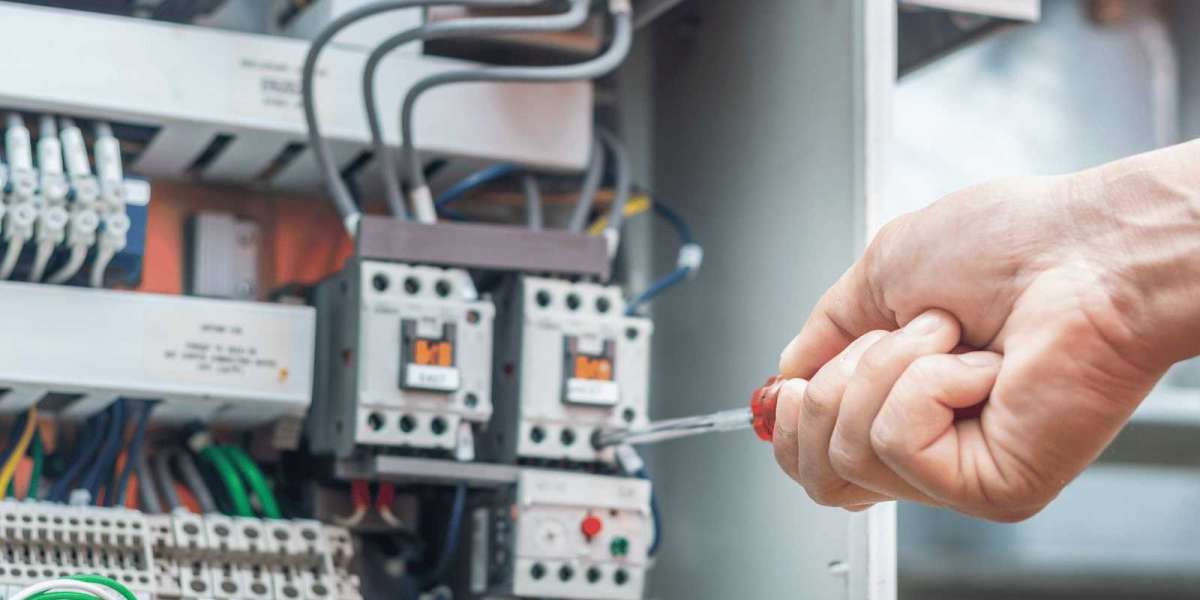When it comes to maintaining or improving the electrical systems in your home, hiring a qualified residential electrical contractor is one of the most important decisions you can make. Electrical work is complex and potentially dangerous, and a licensed professional ensures that the work is done safely, efficiently, and in compliance with all applicable codes and regulations. Whether you're dealing with a simple repair, a major upgrade, or new construction, knowing how to hire the right electrical contractor can save you time, money, and prevent any electrical hazards.
In this article, we'll break down everything you need to know about hiring a residential electrical contractor, from understanding the services they provide to finding the right one for your project.
- What Services Do Residential Electrical Contractors Provide?
Residential electrical contractors are trained and licensed professionals who specialize in working with the electrical systems in homes. Their services include but are not limited to:
- Wiring and Rewiring: If you’re building a new home or renovating an existing one, an electrician will handle the wiring. This may also include rewiring older homes to meet current safety codes.
- Electrical Panel Upgrades: If you have an outdated electrical panel, upgrading it can prevent issues like overloaded circuits or power shortages. An experienced contractor can assess your needs and recommend the appropriate upgrades.
- Lighting Installation: Whether you're looking to install new light fixtures, landscape lighting, or energy-efficient LED lights, an electrician can handle it all.
- Outlet and Switch Installation: From installing new outlets and switches to replacing broken ones, electrical contractors ensure these are safe and functional.
- Troubleshooting and Repairs: Electrical issues like flickering lights, tripping breakers, or faulty outlets can be symptoms of deeper problems that require professional attention.
- Home Automation: Many electricians now specialize in smart home technology, allowing you to integrate smart lighting, security systems, and climate control systems.
Before hiring an electrical contractor, ensure that they are equipped to handle the specific type of electrical work you need for your home. Discussing your needs in detail will also help you avoid unnecessary work and reduce the overall cost of the project.
- Why Hiring a Licensed Professional Matters
When hiring an electrical contractor, make sure they are licensed, insured, and experienced. A licensed contractor ensures that the work they perform meets local building codes and safety standards. Electrical work that isn't done properly can lead to serious hazards, such as electrical fires or electrocution. Unlicensed electricians or DIY electrical work can void your homeowner’s insurance and result in costly fines if the work doesn’t meet local code requirements.
According to the U.S. Bureau of Labor Statistics, about 2,000 workers are injured annually in the U.S. due to electrical accidents (source: BLS). This statistic highlights the importance of hiring a professional electrician who has the proper training and knowledge to handle electrical work safely.
Additionally, an insured contractor will protect you in case of any damage to your property or injury during the job. If you hire an unlicensed or uninsured contractor, you could be held liable for any damages that occur during the project.
- The Right Qualifications and Experience
Not all electricians are created equal. There are different types of electrical contractors, and you need to make sure you’re hiring someone who is qualified for your specific job. For example:
- Journeyman Electricians: These are professionals who have completed an apprenticeship and passed a licensing exam. They can handle most electrical tasks under the supervision of a master electrician.
- Master Electricians: These electricians have completed extensive training, have years of experience, and hold advanced certifications. They can manage large projects and oversee journeymen electricians.
- Specialty Electricians: Some electricians specialize in specific areas, such as smart home systems, solar panel installations, or home automation.
Before hiring a contractor, ask about their qualifications, certifications, and experience. Be sure to verify their license through the local government or regulatory body to ensure they meet all the necessary standards.
- How to Find a Reliable Electrical Contractor
Finding a good residential electrical contractor can be a challenging task, but there are several ways to help narrow down your options:
- Get Recommendations: Start by asking friends, family, or neighbors for recommendations. Word-of-mouth referrals can be a great way to find someone reliable who has done quality work for others.
- Search Online: You can also use online platforms like Google, Yelp, or Angie’s List to find local contractors. Look for contractors with high ratings and positive reviews from customers.
- Check Credentials: Once you’ve compiled a list of potential contractors, check their credentials. Look for licenses, certifications, insurance, and bonding. Ensure they are registered with the Better Business Bureau (BBB) and have a good reputation.
- Request Quotes: Always ask for multiple quotes for comparison. Make sure the quotes are detailed and include a breakdown of the costs for materials, labor, and permits. Avoid contractors who offer significantly lower quotes than others; this could be a red flag for subpar work or hidden fees.
- Important Questions to Ask Before Hiring
When interviewing potential contractors, there are several key questions to ask to ensure they are the right fit for your project:
- Are you licensed and insured?: This is the first question you should ask. It’s essential to ensure they are legally qualified to perform the work.
- What experience do you have with projects like mine?: Make sure the contractor has experience in the type of electrical work you need, whether it’s wiring a new home, upgrading an electrical panel, or installing a generator.
- Can you provide references?: A reputable contractor should be able to provide references from past clients. This allows you to check the quality of their work and their professionalism.
- What is the timeline for completion?: Get a clear understanding of how long the project will take. If the timeline is too long or vague, it could be a sign that the contractor isn’t organized or experienced.
- What is the total cost?: Always ask for a detailed written estimate that includes labor, materials, and any other potential costs. Be cautious of contractors who provide estimates without seeing the scope of work.
- Understanding Cost Factors
The cost of hiring an electrical contractor can vary widely depending on several factors:
- Scope of the Project: The complexity and size of the job will affect the cost. Smaller tasks, like replacing an outlet, will cost less than major rewiring or electrical panel upgrades.
- Hourly Rate vs. Flat Rate: Some electricians charge an hourly rate, while others offer a flat rate for specific services. Ensure you understand how the contractor charges before hiring them.
- Location: The location of your home can affect the cost of electrical services. Contractors in urban areas with a higher cost of living may charge more than those in rural areas.
- Permits and Inspections: In some cases, you may need to obtain permits for electrical work. Contractors should handle this process, but it will add to the overall cost.
According to HomeAdvisor, the average cost for hiring a residential electrical contractor in the U.S. ranges from $150 to $500 per hour, depending on the project’s complexity (source: HomeAdvisor). It's essential to discuss the pricing structure upfront to avoid unexpected costs.
- Red Flags to Watch Out For
When hiring a residential electrical contractor, there are some red flags you should watch out for:
- No License or Insurance: As mentioned earlier, always check for proper licensing and insurance. If a contractor doesn’t have these, it’s a major red flag.
- Unclear or Low Quotes: If a contractor provides a quote that is far below others, or refuses to give you a written estimate, it could be a sign that they’re cutting corners or trying to hide hidden fees.
- Lack of References or Reviews: If a contractor doesn’t have a track record of positive reviews or references, proceed with caution. Reputable electricians will always have satisfied clients who can vouch for their work.
- Conclusion
Hiring a residential electrical contractor is a crucial step in ensuring the safety, functionality, and efficiency of your home’s electrical system. By following the tips outlined above, you can find a skilled, reliable, and licensed professional who will get the job done right. From ensuring that the contractor is licensed and insured to asking the right questions and understanding the costs involved, the more informed you are, the smoother the process will be.
Remember, electrical work is not a DIY project – it’s an investment in your home’s safety and future. Choose wisely, and you’ll have peace of mind knowing that your electrical systems are in good hands.



